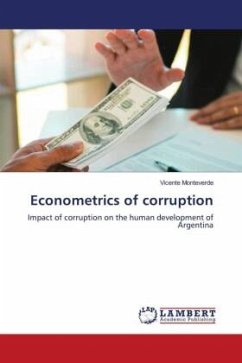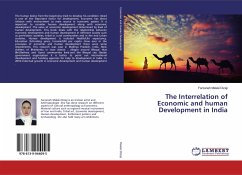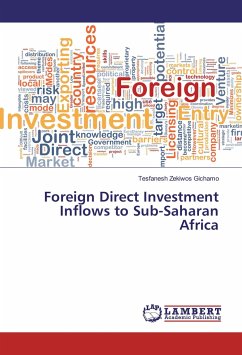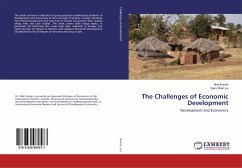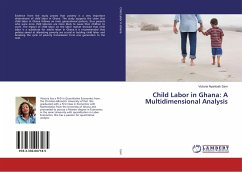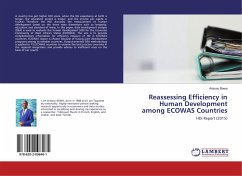
Sub-Saharan Africa
Essays on Human Development
Versandkostenfrei!
Versandfertig in 6-10 Tagen
37,99 €
inkl. MwSt.

PAYBACK Punkte
19 °P sammeln!
The essays included in this book seek to convey, in the context of the Sub-Saharan African countries, the ideas that promoting human development is a valuable policy tool that can render important benefits to society as a whole, and as such it should receive the highest priority from policy makers. The topic of children budgets occupies the first chapter, which highlights the benefits that can be obtained from the children budget, the procedures involved in its preparation, and aspects of dissemination and transparency. Next, the determinants of the human development index are analyzed, stress...
The essays included in this book seek to convey, in the context of the Sub-Saharan African countries, the ideas that promoting human development is a valuable policy tool that can render important benefits to society as a whole, and as such it should receive the highest priority from policy makers. The topic of children budgets occupies the first chapter, which highlights the benefits that can be obtained from the children budget, the procedures involved in its preparation, and aspects of dissemination and transparency. Next, the determinants of the human development index are analyzed, stressing the roles played by institutional capacity and control of corruption. The topic of the poverty trap in the context of Botswana's labor markets is discussed next, with an emphasis on the importance of parents being able to attain relatively high levels of education, so that their children can escape the poverty trap. Emphasis is put on the argument that each country should design and execute its own early childhood development strategy tailored to its particular needs, which would deliver benefits in economic and social development not obtained from other development policies.







